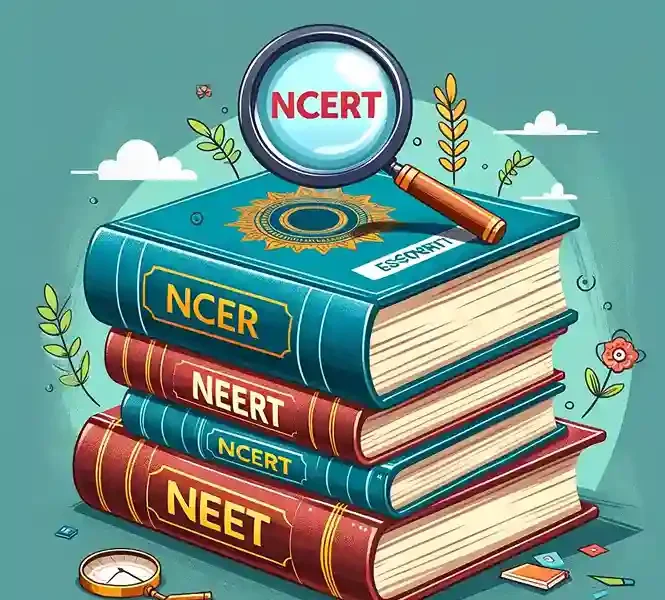How to read the NCERT for NEET?
Hey future docs. I’m back to the basics with this blog. The question seems very easy right? ‘It’s a book. You just read it?’ is what you’d say.
Well, it does not work that way. Everybody reads the NCERT, but not everybody gets a perfect biology score. This means that there is a gap in the way that we are reading.
Let’s figure out what this gap is and how to fix it.
Is NCERT enough for NEET?
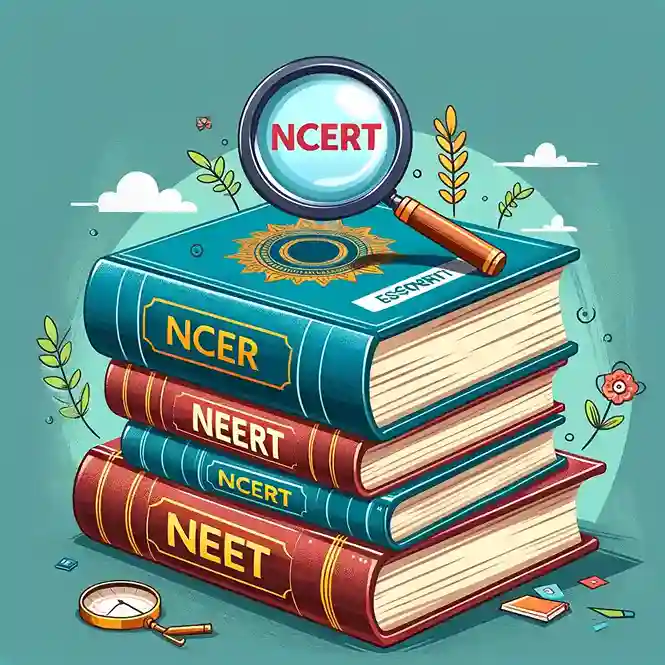
Let’s start with the very basic question. Is it really enough to just study the NCERT for NEET? A lot of students do not believe us when we say that it is indeed enough. And they then keep wasting their time on reading hundreds of books for biology.
If you do not believe me, you can check the analysis of previous year questions from the last 10 years. It is very very clear that almost all the biology questions are straight from the NCERTs.
Usually there’s one or two questions that are not directly from the NCERT but they are too based on the concepts given in the NCERT. So, essentially, every biology, most inorganic and organic chemistry and all physics concepts are from the NCERT textbooks.
So, technically NCERT, (if read the right way) is enough for NEET Biology, NEET Inorganic chemistry and NEET organic chemistry.
If you still like some point from other books is extremely important and cannot be left out, just write it in the NCERT itself. You can use the empty spaces above and below the text to add you points.
How to read the NCERT for NEET
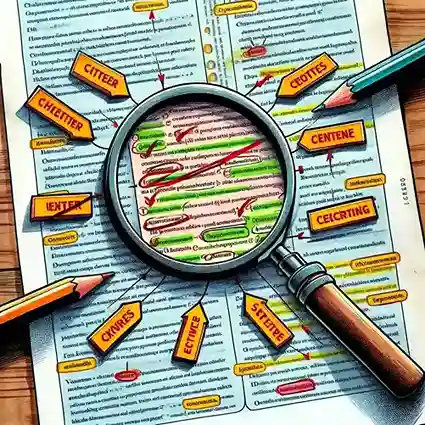
To say it in one sentence, you are going to read the NCERT from the examiner’s point of view. Any sentence can be a question.
The NCERT is written in paragraphs instead of being pointwise. This makes it difficult to remember everything that has been written. So, I would advise breaking it up into points and make notes full of flowcharts and tables. This helps to organize the content and put it in a more efficient format to memorize.
By content, I mean EVERYTHING. The tables, the diagrams, the description given below diagrams, summaries and scientists. Everything is important. You can skip memorizing some data in the ecology section. It is not usually asked as it keeps changing, but other than that, everything needs to be memorized.
How to know what’s important and how to put focus on those lines in the NCERT?
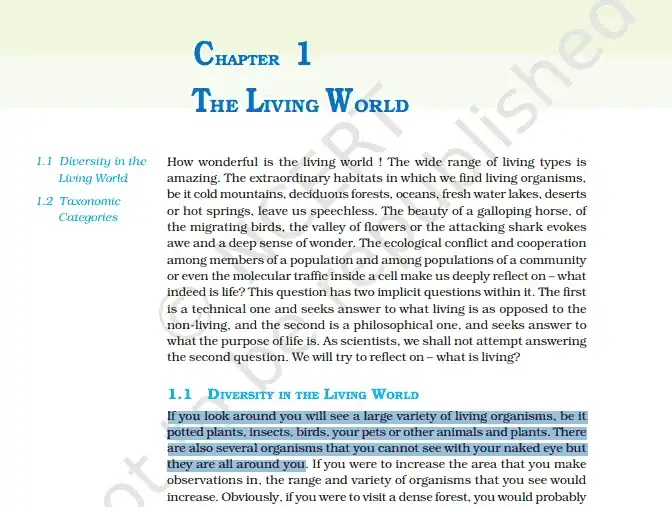
This highlighted part is a conversational bit that you do not have to remember. There are many similar sentences that are not important as they are just added to make the book more readable. Identify such sentences and cross them out, it will make your content seem smaller and thus you’ll have more motivation to read it.
Except for this, I think every point in the NCERT is very important and can be asked in the NEET exam. So, don’t skip anything else.
Highlighting the NCERT
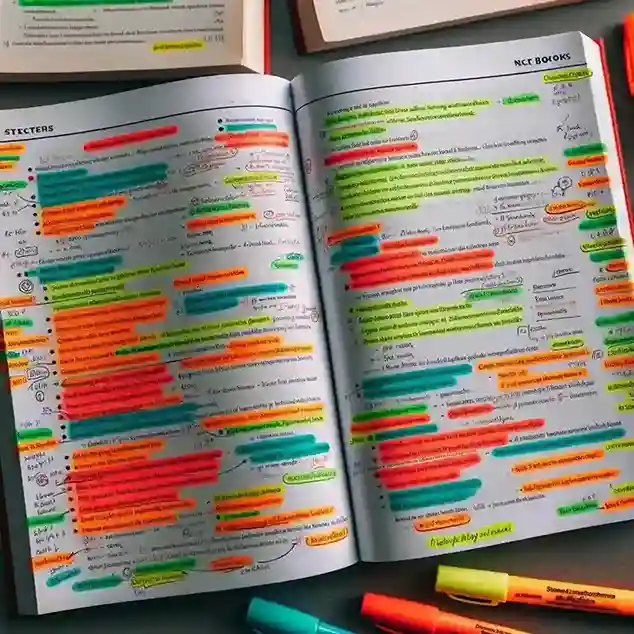
Don’t make it a colouring book. Use only your pencil to highlight for the first few reads. First understand the content and detect the keywords.
Then in the 3rd or 4th read you start highlighting using the 3-color rule. 1 is for keywords, other is for examples and the last colour is for the points that you easily forget. To understand this in detail, go to the NCERT Textbook highlighting blog.
If you are in the habit to highlight while reading, switch the highlighter for a pencil and underline instead. It’s less messy and can be erased too.
Keep your NCERT textbooks in good condition so that you don’t have to change it every 6 months.
When to read the NCERTS?

After lectures and before questions is the perfect time.
Only try to read the NCERTs when you have a fair idea of the chapter’s content. Otherwise if you get into it directly, there are chances that you won’t understand anything.
So try to attend class lectures or watch lectures on YouTube before going to the NCERT.
Immediately after reading the NCERT thoroughly, you can start questions and PYQ solving. This way, you will understand your reading patterns too. You can check if you’ve skipped a point while reading, or if you don’t remember content by reading.
This is feedback that you can then work on.
How many times should I read the NCERT?

Answer is- as many times as possible. The bare minimum is 4-5 reads. For biology, NCERT should be the only study material. Later you can shift to revision notes, made from the NCERT. But early on, while understanding a topic, stick to the NCERT only.
The first read must be very slow and mindful of all the points. Second can be relatively quicker, and the subsequent reads can be very quick- even 10-15 minute reads suffice.
Keep reading and revising as many times as possible and you can get a perfect score in biology based on this. 360/360 is not difficult if you read the NCERT enough times.
That’s it.
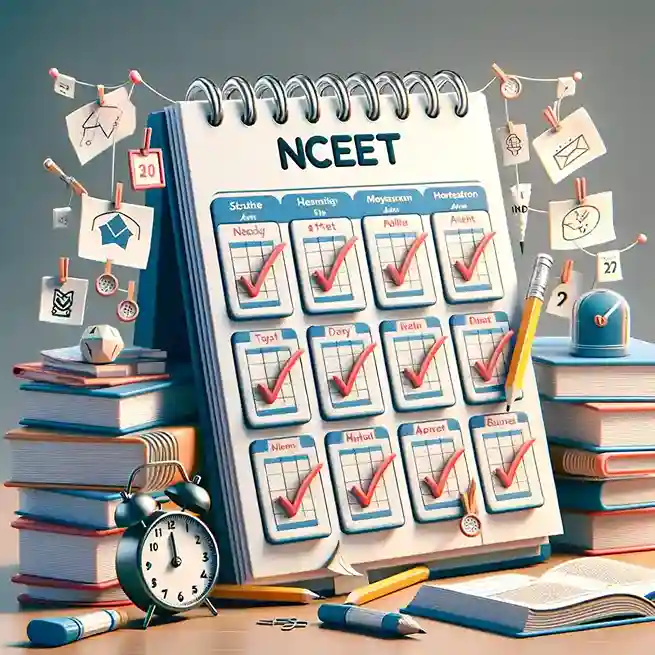
It’s all about concentration and repetition while reading the NCERTs. Stay consistent with it. Keep reading as much as possible. If you have a doubt, comment below.
All the best, dear aspirants.
